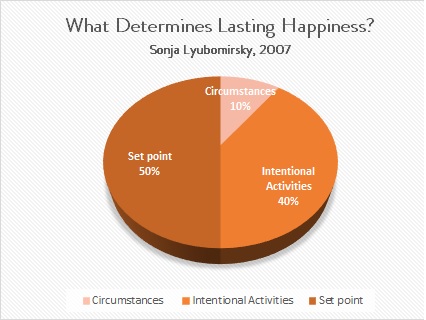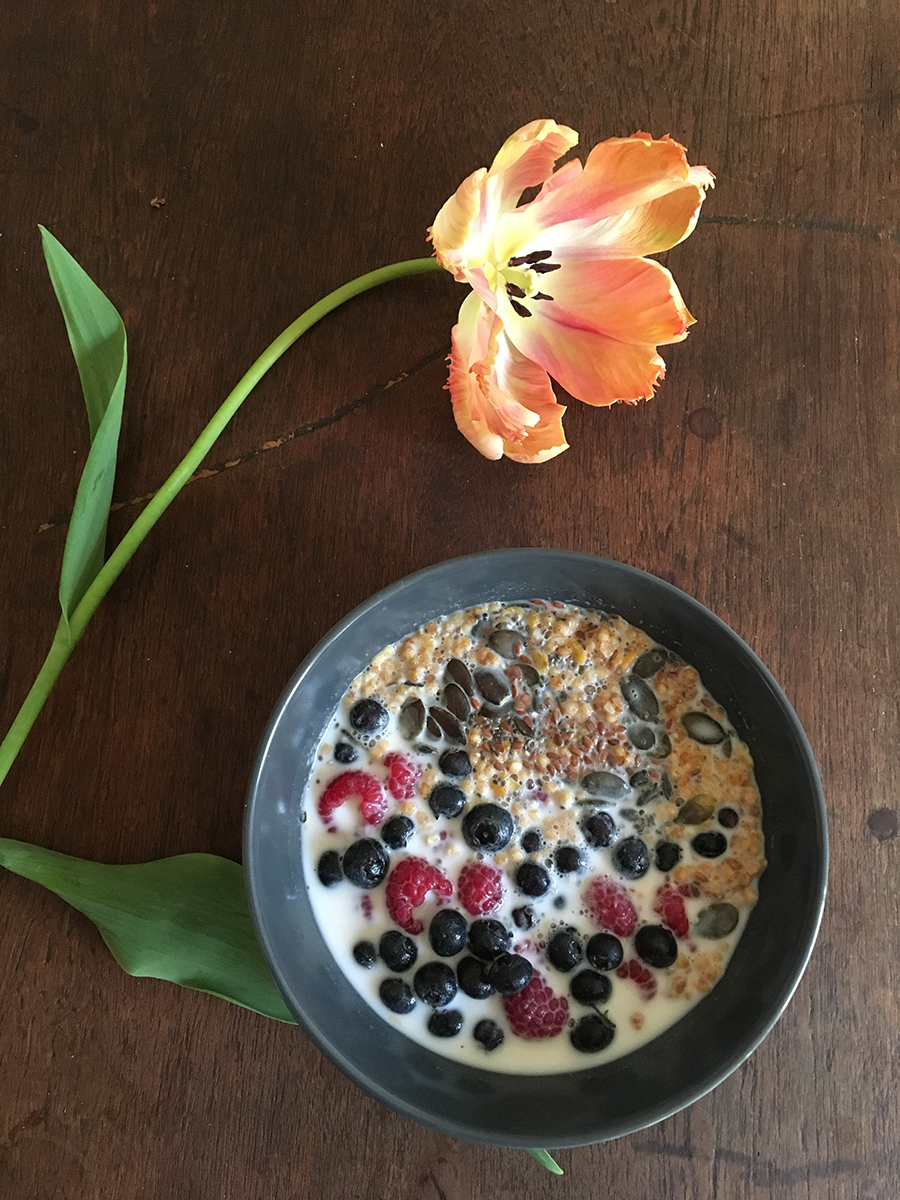Isn’t happiness the ultimate pursuit of our lives? But what is happiness? And is there anything you can consciously do so you can be happier, even during hard times?
Who isn’t ready for some optimism and a positive outlook lately? I feel it is high time I bring out my positive psychology toolbox. And yes, today, I want to dare start sharing what I have learned about this universal aspiration: happiness and how you can be happier.
The current situation has had everyone adjust to some degree. Some more than others. But, it it may have you reflect on the meaning of your life and maybe, evaluate if you can be happier.
Unfortunately, many people spend their existence feeling that happiness may simply not be “their destiny”. For others, circumstances that unfold in their life have led them to believe they are stuck in unhappy mode.
My personal quest in understanding happiness was born out of the curiosity and wish to improve my own. And, what I have discovered through education, personal and clients’ experiences, has led me to wanting to spread the word wider on this blog.
So, let’s start our exploration by looking at the misconceptions that have many looking for happiness in all the wrong places.
Thinking you can be happier through temporary goals?
Before we explore whether you can be happier, I feel it is as important to examine what happiness is not.
For many of us, the notion of happiness evolves through life. There are many endeavors, big or small, that you may pursue thinking they will result in your becoming happier:
- When I am in a fulfilling relationship
- When I have a baby
- When I am thinner
- When I get a better place or buy a home
- Once I get that job
- If I have more money
The list is endless… But many of us find out that while any of these may be worthy goals and may bring a certain degree of fulfillment, they may fall short in the long run.
The relationship may fall apart down the road. Your children grow up and fly the coop to live far away. You lose the weight but realize keeping it off is tough. You bought the house and get used to it. And the new job turns out to be unsatisfying…

The fact is that humans get used to everything. In fact, the initial boost in pleasure and enjoyment you get from a new experience or material thing, diminishes when it becomes familiar and regular in your life. As a result, we do not derive lasting happiness from temporary pleasures and experiences.
No, money can’t buy happiness either
But what about money? Doesn’t money allow us to be more satisfied? Most people think more money means you can be happier. They believe it will solve all their problems so they can ride off into the sunset basking in happiness.
It goes without saying that if one struggles to make ends meet: pay rent and bills, put food on the table, and just survives, their happiness is greatly compromised. That is because their emotional well-being – one of the significant markers of happiness – is affected.
However, you will be surprised to know how low the income threshold to emotional well-being is. As part of Gallup’s 2017 Sharecare project, Dan Witters and Diana Liu reported in an article that money does increase happiness, but only up to a certain point.
In the U.S., the amount of positive emotions experienced in a day only increased in relation to household income up to $75,000/year on average.
They did find this limit varies depending on the region, probably because the standard of living varies greatly across the country. The highest limit was in the North East with $120,000/year; while West North Central and West South Central regions’ residents reach their peak emotional potential at about $54,000 per year.
So, what we find out is that once basic needs and comforts are covered, increasing our life satisfaction does not depend on our income, or on material goods and temporary experiences.
So what does authentic lasting happiness mean?
Sure we know what “happy” feels like, but it’s harder to define it. If happiness is not durably improved through temporary experiences and material means, let’s try and see how the researchers define what happiness is.
"... Life, Liberty and the pursuit of Happiness."
- Thomas Jefferson
The quest for happiness has indeed always been a favorite subject of reflection of the great philosophers dating back 2500 years. And, depending on cultural approaches, happiness can take many forms.
Yet, in the last 20 years, Positive Psychology and the Science of Happiness have emerged. By delving deeper, we have gotten a better understanding of what happiness means for most.
Among the leading scientists of the field, Ed Diener, a Professor at the University of Utah and at the University of Virginia coined the term “subjective well-being”, which is used interchangeably to define happiness.
Diener assesses a person’s “subjective well-being” by asking people how satisfied they feel with their own lives, and how much positive and negative emotion they are experiencing regularly. And to measure “subjective well-being”, Ed Diener and his colleagues developed the “Satisfaction with Life Scale”, a short, but telling, 5-question assessment (1).

Expanding on this concept, Sonjia Lyubomirsky, a Positive Psychology Professor at the University of California, Riverside, describes happiness as: “the experience of joy, contentment, or positive well-being, combined with a sense that one’s life is good, meaningful, and worthwhile.”
In short, happiness or subjective well-being refers to the way people evaluate their lives, in terms of their overall life satisfaction, their emotional states, and how worthwhile and purposeful their existence is.
With this better understanding of what happiness truly is, let’s examine what determines your level of happiness and how you can be happier.
Lyubomirsky’s Happiness Formula
Is it indeed possible to improve your happiness durably, even if you were born into the worst of circumstances, or even if you are currently going through hardship?
In 2001, in the early days of positive psychology, Sonya Lyubomirsky (2) set about answering the question. At the time there were no studies about how people pursue or try to increase happiness.
At the time, most psychologists did not believe you could increase happiness lastingly. The general thoughts were:
- You either had inherited the genes to experience static happiness throughout your life,
- Or you had not inherited them. In this case, no matter whether you could improve temporarily your happiness, in the long run, you would eventually come back to your baseline.
Lyubomirsky and her colleagues were not satisfied with these bleak and largely unproven conclusions that subjective well-being could not be bettered.
In fact, what they found over the next few years, as they researched the causes happiness, is one of the most important foundation of Positive Psychology: the Happiness Formula.

The Formula for Happiness is H = S + C + V.
Happiness is the sum of:
S: our biological Set point
C: our current life Circumstances
V: our Voluntary actions, choices and the thoughts we engage in every day.
How you can be happier
Let’s examine these variables to see if there is anything you can do to improve how we feel about our life and how you can be happier.
The Set Point
Yes, it is true that a large part of our life satisfaction simply comes from genes. In that sense, we are not all equal.
The happiness set point, which is the baseline of our potential for happiness, is inherited from one or both of our parents.
The set point can account for up to 50% of our subjective well-being over the course of our lives. This was demonstrated by Lykken and Tellegen who studied happiness in perfect twins (3).
Circumstances
Like most people, you may think that your current life circumstances have a large impact on your happiness.
But your situation and circumstances account only for 10% of the variation in your level of happiness compared to someone in different circumstances.
I know this may be hard for you to believe. But an impressive body of research has shown that, whether you are poor or rich, healthy or unhealthy, single or married, beautiful or not, born in the West or the East, etc, it has little impact on your level of happiness.
For example, Kahneman and Deaton demonstrated how income may improve your life evaluation, but it will not improve your emotional well-being (4).
This explains why you have met people “who have it all” but are unhappy. While others, with modest means, appear to be genuinely happy and content with their life.
This topic alone deserves a full article. But, if you can accept the fact your happiness is not dictated by your circumstances, then you hold the key to improve your well-being in life. And here is why you can be happier…
The 40% Key to Happiness:
There is a very large factor left within our control. Luybomirsky’s research underscores that 40% of our happiness depends on one factor we can change: Our daily intentional behavior.
"Happiness depends upon ourselves."
- Aristotle
We can’t change our genes and our circumstances, but we have full control on changing how we think and act every day. This is where our untapped potential to improve our happiness lays.
By implementing the actions and thoughts of happy people, you too can empower yourself. You can be happier.
The science of happiness has made great progress. There are many simple practices that you can start implementing to better the way you feel in life, no matter where you are at today.
Positive habits: the building blocks of a happier life
Surely, we cannot expect to be in a permanent state of bliss. We must accept that difficult events and life’s trials happen. Through them we experience other ranges of emotions, which are critical to our emotional intelligence.
And it also is true that happiness is bio-individual and may feel different for each one of us. However, we can find common ground into positive habits and practices to help ourselves improve the way we feel about our life journey.
As Lyubomirsky points out, we are much less likely to attain happiness if we “pursue” it like an object, than if we simply work on adding the building blocks that promote it.
As I have learned through my own and my clients experiences, when it comes to implementing new habits to improve well-being and happiness, we often look for complicated solutions.
Let me remind you that the people who leave the longest happiest healthiest lives on our planet fill their day with common-sense and simple habits. They do not overthink their food or put themselves through complex healing therapies.
No, there is no magic pill and it requires your mindful practice. But I can assure you that working on your well-being is the single most rewarding investment you could ever make. Plus, it pays off big time in the long run!
Start improving your happiness today with “Three Good Things”
So, before going, I want to share a simple practice called “Three Good Things”. This exercise was created by Martin Seligman, a professor of psychology at the University of Pennsylvania and one my teachers, and a leading researcher in Positive Psychology.
I pick this gratitude exercise to start. The reason is that, among the many daily habits you can build in your day to be happier, this practice is very easy to implement and is rapidly effective.

Here are the simple instructions:
- Each day, for at least one week, write down 3 things that went well for you that day. They can be very small or bigger event. (e.g our boss complimented me and my team for our project, I got some beautiful flowers that warm my place)
- Give each event a title (e.g., I had a great walk through the park at lunch…)
- Write as many details as possible about how the event unfolded. And if others were involved, what they said or did.
- Write down how you felt when it happened and how you feel now.
- Then, provide an explanation as to why you believe the event happened and went well.
- And, if at first you find your mind wandering to a negative thought, acknowledge it without judgement and bring back your attention to the positive event you are writing about. Sooner than you think, your awareness will trained to focus on what you are doing.
To ensure that you give it a solid try and benefit from it:
- Try this practice once a day, for at least 1 week or better 2 weeks. I recommend doing it at a set time, such as before going to bed. By tacking this habit to another that is already anchored, it will be easier to implement.
- Use a journal and write. Just doing the exercise in your head will not be as effective. Creating a physical record is crucial. Writing and journaling have been proven time and time again to be effective at raising awareness, especially when exploring habits.
- Accountability always helps. Find a friend or loved one who you know could benefit and commit to this simple exercise. Agree to share a text once a day to confirm you’ve done the exercise. If you are comfortable with the person, you could even share your writings via email as well.
I love this exercise because it is a tried and true testament that even in the most difficult circumstances, you can sprinkle and implement useful mindfulness practices. It shifts your attention on the “silver linings” that exist in our life, so you can be happier.
I can confirm that this simple practice alone has helped myself and countless people around the world improve how their life satisfaction.
Of course, I would love to hear your feedback on this practice. Feel free to comment below or to contact me.
To your better life!
Do you want to find out if my personal coaching programs are right for you?
- “The Satisfaction With Life Scale Ed DIENER, Robert A. EMMONS, Randy J. LAR.SEM, and Sharon GRIFFIN, University of Illinois at Urbana-Champaign, Journal of Personality Assessment, 1985,49, 1
- “The How of Happiness”, Sonjia Lyubomirsky, 2007
- http://psych.colorado.edu/~carey/courses/psyc5112/Readings/psnHappiness_Lykken.pdf
- http://www.princeton.edu/~deaton/downloads/deaton_kahneman_high_income_improves_evaluation_August2010.pdf
- https://www.actionforhappiness.org/take-action/find-three-good-things-each-day




